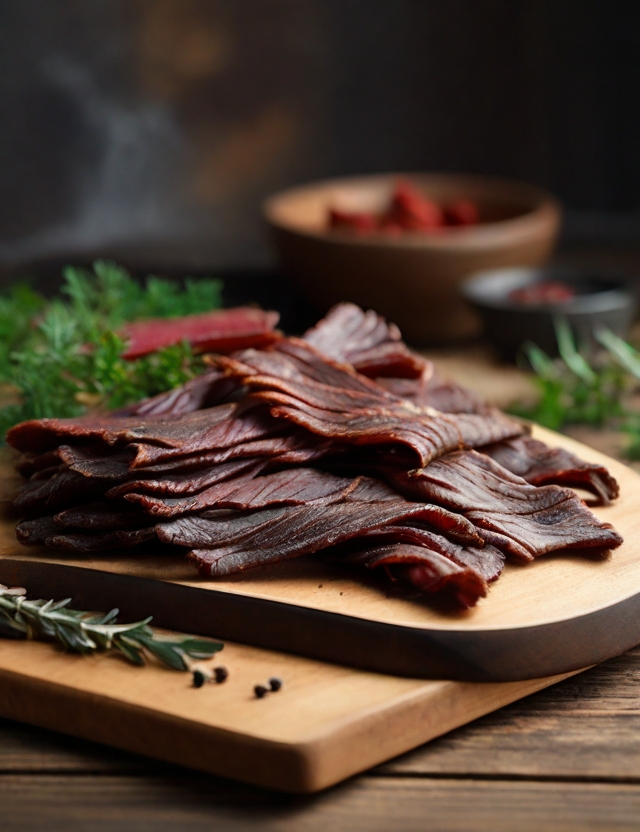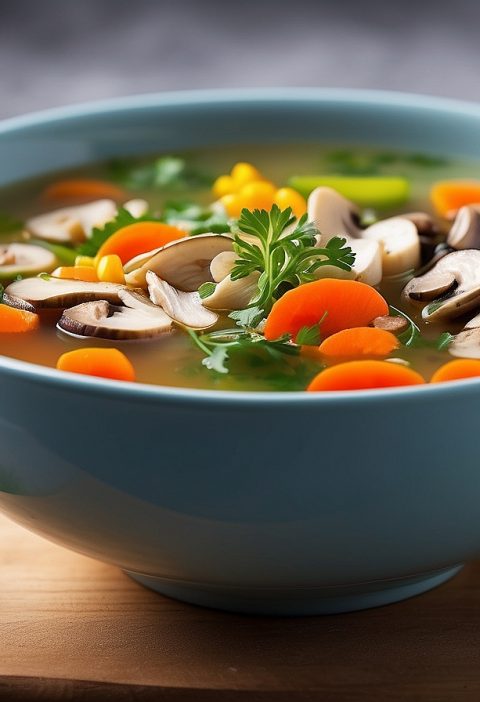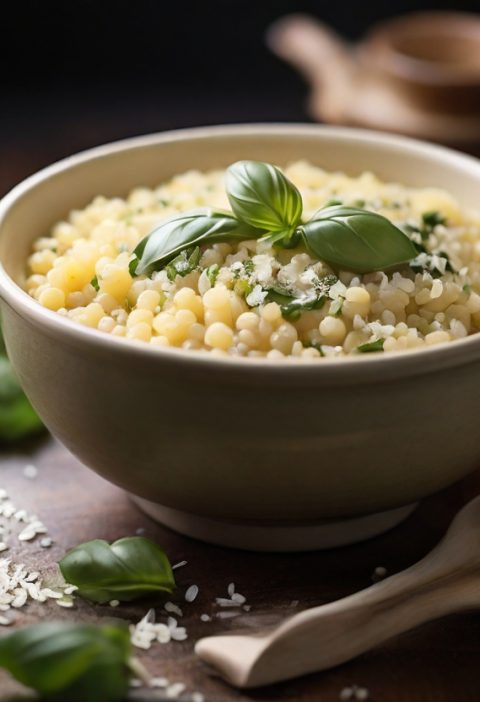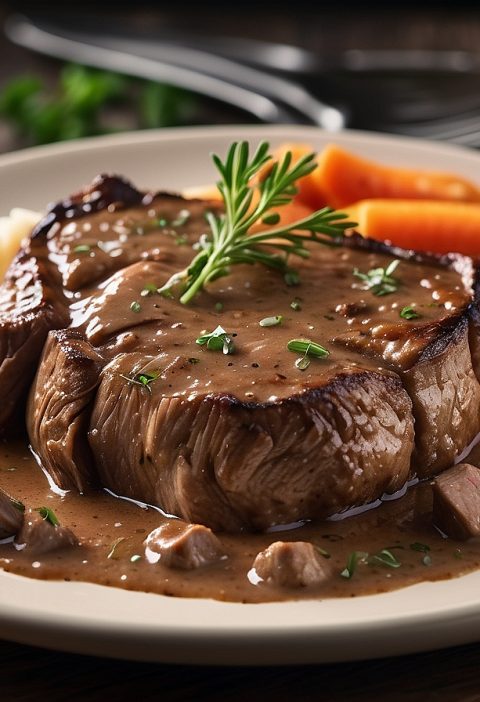Welcome to our delightful Deer Jerky recipe, where we transform lean cuts of deer meat into a snack that’s bursting with flavor and perfect for any occasion. Deer jerky is not only a delicious treat but also a great way to make use of lean, high-quality protein. This recipe combines the natural flavors of the deer meat with a savory marinade, resulting in tender jerky that will leave you craving for more.
Difficulty: Moderate
Prep Time: 30 minutes
Cooking Time: 4-6 hours
Serving: 8 servings
Yield: Approximately 1 pound of jerky
Calories: 120 calories per serving
Ingredients:
- 2 pounds (900g) deer meat, thinly sliced
- 1/2 cup (120ml) soy sauce
- 1/4 cup (60ml) Worcestershire sauce
- 2 tablespoons (30ml) liquid smoke
- 2 tablespoons (30ml) honey
- 1 tablespoon (15ml) apple cider vinegar
- 2 teaspoons (10g) garlic powder
- 1 teaspoon (5g) onion powder
Equipment:
- Sharp knife
- Cutting board
- Large mixing bowl
- Whisk or fork
- Ziplock bags or airtight container
- Dehydrator or oven with low temperature setting
Step-by-Step Guide:
Step 1: Prepare the marinade by combining the soy sauce, Worcestershire sauce, liquid smoke, honey, apple cider vinegar, garlic powder, and onion powder in a large mixing bowl. Whisk or stir the ingredients until well combined.
Step 2: Take the thinly sliced deer meat and place it into the marinade. Ensure that the meat is completely coated with the marinade. Cover the bowl and refrigerate for at least 4 hours, or preferably overnight, to allow the flavors to develop.
Step 3: After marinating, remove the deer meat from the refrigerator and drain off any excess marinade. Pat the meat dry with paper towels to remove any moisture.
Step 4: Preheat your dehydrator or oven to a low temperature setting, around 160°F (70°C). If using an oven, place the meat directly on the oven racks or use a wire rack for better air circulation.
Step 5: Arrange the deer meat slices in a single layer on the dehydrator trays or oven racks. Ensure that they are not overlapping to promote even drying. Place the trays or racks into the dehydrator or oven.
Step 6: Dry the deer jerky for 4-6 hours, or until it reaches your desired level of firmness. Keep an eye on the jerky throughout the drying process, as the drying time can vary depending on the thickness of the slices and the humidity in the environment.
Step 7: Once the jerky is dried to your liking, remove it from the dehydrator or oven and allow it to cool completely. If desired, you can blot any excess oil from the surface of the jerky with paper towels.
Step 8: Transfer the cooled deer jerky into ziplock bags or an airtight container for storage. Properly dried jerky can be stored at room temperature for up to 2 weeks, but for longer shelf life, refrigeration is recommended.
Tips and Tricks:
- To make slicing the deer meat easier, partially freeze it beforehand for about 1 hour. This will firm up the meat and make it simpler to achieve thin, uniform slices.
- For added flavor, you can experiment with different marinade variations by including ingredients like black pepper, cayenne pepper, smoked paprika, or your favorite seasonings.
- If using an oven, crack the oven door open slightly to allow moisture to escape during the drying process.
- To test if the jerky is properly dried, allow a piece to cool completely before testing its texture. The jerky should be firm and dry to the touch, but still slightly pliable.
Nutritional Information:
Calories: 120 calories per serving
Fat: 3g
Carbohydrates: 6g
Protein: 18g
Fiber: 1g
Final Thoughts:
This Deer Jerky recipe is a fantastic way to enjoy the rich flavors of wild game while providing a protein-packed snack that’s perfect for on-the-go or a satisfying treat at home. The combination of the tender deer meat and the savory marinade creates a snack that will leave you craving for more. So, grab some deer meat, marinate it to perfection, and indulge in the deliciousness of homemade deer jerky.
FAQ:
Q1: Can I use a different type of meat for this recipe?
A1: Absolutely! While this recipe specifically calls for deermeat, you can certainly substitute it with other lean meats like beef, turkey, or even game meats like elk or venison.
Q2: Can I adjust the level of spiciness in the jerky?
A2: Yes, you can customize the spice level to your preference. If you prefer a spicier jerky, you can add cayenne pepper or chili flakes to the marinade. Adjust the amount according to your desired heat level.
Q3: Can I freeze the deer jerky for long-term storage?
A3: Yes, freezing the jerky is an excellent option for long-term storage. Ensure that you place it in airtight freezer bags or containers to prevent freezer burn. Properly frozen jerky can last for several months.
Q4: Can I use a food dehydrator instead of an oven?
A4: Absolutely! A food dehydrator is an excellent option for making jerky. It provides consistent heat and airflow, resulting in evenly dried jerky. Simply follow the same steps and drying time mentioned in the recipe.
Q5: Can I add additional flavors to the marinade?
A5: Yes! Feel free to experiment with different flavors and seasonings to customize your jerky. You can add ingredients like teriyaki sauce, hot sauce, maple syrup, or even experiment with different herbs and spices to create unique flavor profiles.
Q6: Can I make thicker slices of jerky?
A6: Thicker slices of meat will require longer drying times to ensure proper dehydration. It’s recommended to aim for thin, uniform slices for quicker and more consistent drying. If you prefer thicker jerky, adjust the drying time accordingly.
Q7: How can I tell if the jerky is spoiled or no longer safe to eat?
A7: Properly dried jerky should have a firm texture and should not feel sticky or moist. If you notice any signs of mold, an off smell, or if the jerky feels slimy or excessively soft, it’s best to discard it to avoid any potential health risks.
Q8: Can I marinate the deer meat for longer than overnight?
A8: Yes, marinating the meat for longer than overnight is certainly an option. It can further enhance the flavor and tenderness of the jerky. However, be mindful that marinating for too long can result in an overly salty taste, so adjust the marinade ingredients accordingly.






